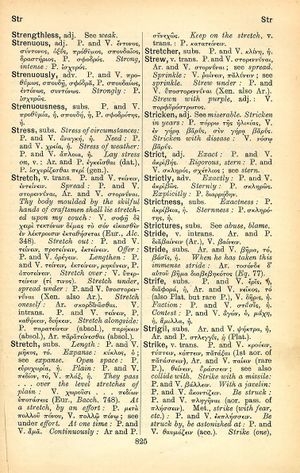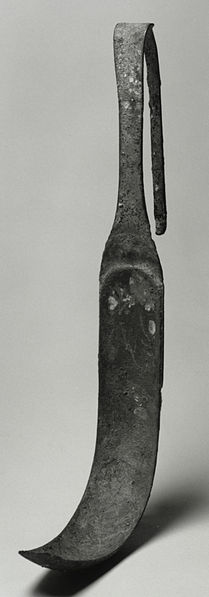strigil
οὐ παντὸς ἀνδρὸς ἐς Κόρινθον ἔσθ' ὁ πλοῦς → it's not for every man to make a journey to Corinth, not everyone can afford a trip to Corinth
English > Greek (Woodhouse)
subs.
Ar. and V. ψήκτρα, ἡ, Ar. and P. στλεγγίς, ἡ (Plat.), στελγίς, στελεγγίς, τλεγγίς.
English Wikipedia
The strigil (Greek: στλεγγίς) is a tool for the cleansing of the body by scraping off dirt, perspiration, and oil that was applied before bathing in Ancient Greek and Roman cultures. In these cultures the strigil was primarily used by men, specifically male athletes; however, in Etruscan culture there is evidence of strigils being used by both sexes. The standard design is a curved blade with a handle, all of which is made of metal.
Strigils were commonly used by individuals who were engaging in vigorous activities, in which they accumulated large amounts of dirt and sweat on their bodies. The people who used the strigil included athletes, the wealthy, soldiers, and more. However, wealthy or prestigious individuals often had slaves to wield the strigils and clean their bodies, rather than doing it themselves.
Strigils were not only significant in a practical sense, but culturally as well. They are often found in tombs or burials, in some cases along with a bottle of oil.


